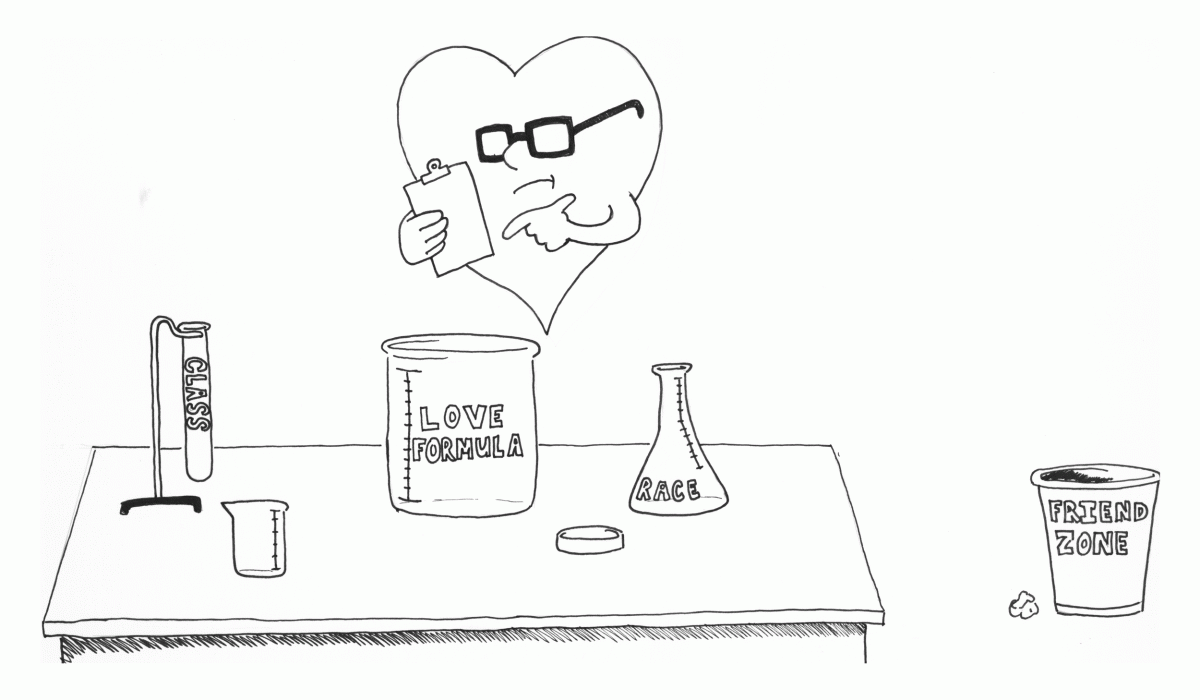Love: it might as well be the eighth wonder of the world with all its indescribable twists, turns, marvels and burns. Because of its pure potency, we like to think of love as being fully reliant upon grand, sweeping emotions – emotions which refuse to follow any type of reason or rationale.
Therein lies the problem. Despite the seeming wisdom of the old adage, “opposites attract,” recent social scientific research tells us that the logistics of one’s social status, such as age, race, religion, education, income and even proximity turn the tide of love far more than impetuous passion ever can.
According to the 2010 demographic research and the 2009 U.S. Census Bureau, both opposite-sex and same-sex couples generally fall in love and marry others within a mere few years of their own age. Age may be “nothing but a number,” yet when it comes to love, its significance cannot be denied.
Moreover, interracial and interethnic marriage rates in the U.S. are still low, and only about one third of Americans marry a person of differing religion. In particular, sharing a religious perspective has always been, and continues to be, a very strong indicator of longevity in romantic relationships.
“My boyfriend and I have been together for almost four and a half years now, and I feel as though a lot of our relationship’s success is due to the fact that we believe in the same religion,” said Jessica Shubbie, a senior at Sonoma State. “Religion has shaped our morals and values in life, and I believe that it allows us to connect on a more personal level.”
Because the ability to connect with another human being on such an intimate level requires mutual cognizance, it also shouldn’t be much of a surprise that people tend to fall in love with those of similar educational statuses and intelligence. Though I’ve not yet fallen in love, the individuals I am attracted to generally share my cerebral and creative capabilities.
But these rational factors which contribute to love aren’t just present in the U.S. or even in our current era. For centuries, the magical phenomenon of love has been strictly dictated by class boundaries and a similar level of income.
For example, in the traditional Indian caste system, marriage between individuals of different castes was often forbidden. The remnants of that doctrine still reign true today, as all of my Indian cousins have been forced into arranged marriages with individuals of endogamous social standing.
Moreover, this occurrence doesn’t only follow such explicit enforcement. Even when uninhibited by blatant rules and regulations, love tends to find a way to bring “birds of a feather together” rather than introducing contrasting individuals to each other’s severely differing worlds.
You know all those proverbs about the tyranny of long distance relationships? Well, it seems as though there’s a reason that love’s trajectory doesn’t generally span too far a radius. Social scientific research states that there is a 50/50 chance you will actually fall in love and marry someone who lives within walking distance of your home or workplace. Although the increasing prevalence of Internet dating is shifting these rules, long-term, long-lasting relationships governed by love are more often than not correlated with close proximity to one another.
But if it’s not proximity, love must rely upon the norms of homogamy, or social rules which encourage interaction between individuals of similar social statuses. It’s fairly simple. Just like with friendships, you are more likely to get along and want to spend time with someone who understands and shares your perspective on the world and general state of health and wealth.
So although the prospect of an illicit and spicy romance with someone vastly more affluent, older and different than you can be very tempting, remember that true love is much more rational than passion-fuelled.





![[Both photos courtesy of sonoma.edu]
Ming-Ting Mike Lee stepped in as the new SSU president following Sakakis resignation in July 2022](https://sonomastatestar.com/wp-content/uploads/2024/04/CC4520AB-22A7-41B2-9F6F-2A2D5F76A28C-1200x1200.jpeg)



























